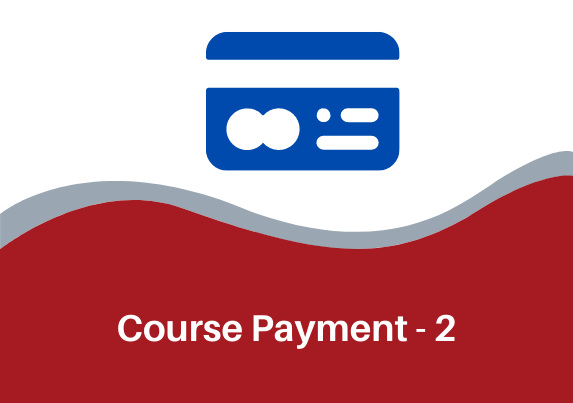About the course
Professor Shreesh Chaudhary, a faculty from the Department of Humanities and Social Sciences at the Indian Institute of Technology, Madras has designed this course on Better Spoken English. This course covers the basics of spoken English and how to effectively implement these basics in the day to day communication and professional communication as well. In this course, you will learn about the importance of spoken English , linguistic aspects of mishearing, how to fluently speak to multicultural/multidisciplinary audience, standard varieties of spoken English, tempo of speech & phrasal pause in English, English rhythm, stress on simple and derived words in English, long vowels in English, friction consonants in English, aspects of theatre in spoken communication, grooming, eye contact, body language, amplitude etc.
In addition to this, the course also covers making presentations, which will include charts, graphs, drawings, maps, diagrams, tables etc, making presentations using powerpoint slides and other presentation Aids. You will also practice and learn to improve the pronunciation of numbers, units of weights, distance etc. This is completely an online course with worldwide accessibility. It also has questions/assignments for hands-on practice. So, this makes it all together a complete package.
Learning Outcomes
After completing this course, you will be able to:
- Understand the significance of communication and presentation skills in your life.
- Become a better speaker of the English language.
- Gain the considerable amount of communication skills.
- Communicate and present yourself effectively anywhere.
- Boost your hireability through innovative, independent learning.
Target Audience
The course can be taken by:
Students: All students who are pursuing any technical/non-technical /professional courses.
Teachers/Faculties: All teachers/faculties who want to learn and improve their communication skills.
Professionals: All working professionals
Why learn Better Spoken English
English may not be the most spoken language in the world, but it is the official language in a large number of countries. It is estimated that the number of people in the world that use in English to communicate on a regular basis is 2 billion!. Since English is the language of science and technology, English speakers have more opportunities to work with others in these fields and to share ideas and innovations.
The English language gives students access to information and research. Since many of the top academic journals are published in English, students and academics need strong English reading and writing skills. Moreover, for a research study or other publication to get sufficient attention, it should be published in English. People who speak English have more job opportunities. Businesses need employees who can communicate fluently with English-speaking partners and clients. In addition, entrepreneurs can access a far wider range of customers online by using English.
Being able to speak English makes it easier to travel. Because English is spoken as a first or second language in so many different countries, it is always easy to find English speakers as well as printed information in English, especially at hotels and in areas frequented by tourists. The number of English speakers around the world has been on the rise for many years, with the current number approaching 2 billion, according to some estimates. The fact that so many people now use English as either a first or second language indicates that English is likely to remain a globally dominant language for many years to come. So it is worth having a go at it.
Course Features
- 24X7 Access: You can view lectures as per your own convenience.
- Online lectures: 29 hours of online lectures with high-quality videos.
- Updated Quality content: Content is latest and gets updated regularly to meet the current industry demands.
Test & Evaluation
Each lecture will have a quiz containing a set of multiple choice questions. Apart from that, there will be a final test based on multiple choice questions.
Your evaluation will include the overall scores achieved in each lecture quiz and the final test.
Certification
This course is free and it has no certificate.
Topics to be covered
- Introduction
- What is the Importance of Presentation Skills & Public Speaking?
- What is the importance of English pronunciation and what is the course textbook?
- What is the Scheme of Evaluation?
- Why do we need a course in Spoken English 1?
- Why do we need a course in Spoken English 2?
- Why do we need a course in Spoken English 3 (Examples of Pause)?
- Why do we need a course in Spoken English 4 (Examples of Stress)?
- Why do we need a course in Spoken English 5 (Examples of Intonation)?
- Why do we need a course in Spoken English 6 (Many other things)?
- Can we summarize and discuss the Next day presentation?
- Feedback on Presentations I
- Can we look at the feedback on presentations?
- What is cycle 1 of introspection (what to ask yourself while presenting)?
- Can we look at some feedback on presentations?
- What are some examples of the good and bad performances by the students?
- Stage Manners
- Can we look at some feedback on the student's presentation?
- What are the various aspects of theatre?
- Tempo of Speech
- What are stage manners?
- What is a good tempo of speech?
- Can we look at some examples of slow speech (recordings)?
- Some Reasons for Mishearing
- What are some reasons for mishearing?
- Can we look at examples from a project in listening?
- Topics for Presentations II
- Can we look at cycle II: presentations by the students on a civic problem in my place?
- What are the tips on what is expected in the student's presentations - cycle II?
- Message
- How can we do research and organization of presentation: what can be the sources of information?
- How can we do research on the topic (sources of information)?
- How must we organize the information?
- Tables, Charts, Graphs
- Can we explore more about research and organization of presentation (II)?
- How to present data?
- PowerPoint Slides
- How to make powerpoint slides?
- What are the principles involved in making slides and can we look at some examples of slides?
- Criteria for Evaluation
- What are the criteria for evaluation?
- Can we look at some examples of mixing words and phrases?
- How can you time yourself?
- Can we look at a summary of mixing words and timing yourself?
- Student Presentations II
- Can we look at the student's presentations?
- Feedback on Presentation II
- Can we look at the student's presentations (II)?
- Topics for Presentation III
- Can we look at the topics for presentation (III)?
- What are the principles and ideas for the presentation on managerial solutions to a civic problem?
- On "Saying 'please!'"
- how can we speak politely in English?
- What are the parameters of reasons for thanking and apologizing?
- What are the indicators of impoliteness and a short summary?
- English Rhythm I
- What are the salient features of the English language?
- English Rhythm II
- What is the rhythm of English (II)?
- What are a phrase and its types?
- When to pause?
- Phrasal Pause in English I
- Phrasal Pause in English II
- What is a phrasal pause in English II- with exercises?
- Units of Time, Weight, Distance
- What are the units of time, weight and distance?
- Can we listen to an audio on units of time, weight and distance?
- Can we review some questions based on the audio?
- Can we get some more practice on the topic?
- Stress in English I
- What is the word stress in English (I) (with practice)?
- Stress in English II
- What is the word stress in English (II)?
- What is a syllable?
- What is the word stress?
- What are the changes in stress?
- Stress in English III
- What is the word stress in English III (with practice)?
- Stress in English IV
- Can we revise word stress?
- What is the word stress in English (IV)?
- Stress in English V
- What is the word stress in English (V)?
- Can we look at some word stress exercises?
- What is a suffix (with exercises)?
- Stress in English VI
- Introduction
- What is stress in the derived word in English (with exercise)?
- Student Presentations III
- Can we look at a student's presentation (III)?
- Student Presentations III Continued
- Can we look at a student's presentation (III) continued?
- Student Presentations III Continued-01
- Can we look at a student's presentation (III) continued?
- Can we provide some feedback on the presentations?
- Can we provide some feedback on the incorrect pronunciation?
- Feedback on Presentations III
- Can we provide some feedback on the presentations?
- What are the topic and some tips for the final presentation?
- Some Non-standard Sounds
- Can we look at the different sounds in English?
- What are the organs of articulation?
- Some Difficult Sounds in English
- What are the reasons for non-standard sounds to come under foreign language?
- What is the difference between short and long vowel sounds?
- What are some other vowels in English?
- What are some non-standard sounds?
- Some Vowel Sounds in English
- Some Consonants in English
- Student Presentations IV
- Can we look at a student's presentation (IV)?
- Student Presentation IV Continued
- Can we look at a student's presentation (IV) continued?
- Student Presentation IV Continued-01
- Can we look at feedback on student's presentations (IV)?
- Can we look at video clippings of examples of feedback on presentations?
- What are some of the things to do before beginning a presentation?
- Final Tips
- Can we look at feedback on student's presentation?
- What are some examples of mispronounced words, examples of wrong sounds and of the wrong usage of words?
- Can we look at the final presentations by students?
- Can we have a summary of everything learn and some tips?
- Better Spoken English - Final Quiz
Note : Parts of this material has been sourced from NPTEL, adapted and modified to adhere to our Pedagogical requirements and uploaded to YouTube for reuse under the same license.





